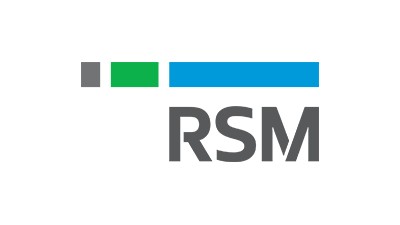The Single Accounting Change That Will Bring $2 Trillion In Liabilities Onto U.S. Balance Sheets
Though its name is puzzling, ASC 842 is surprisingly simple to explain. It is a new accounting standard that requires companies to record most leases longer than 12 months on their financial statements. But that simple alteration means that $2 trillion in liabilities is set to enter the balance sheets of America’s businesses. The resulting financial shock could touch every corner of commercial real estate.

The Financial Accounting Standards Board adopted ASC 842 in 2016 to give investors and lenders more visibility into companies’ holdings. When the new standard goes into full effect later this year, it may disincentivize long-term leases, hastening CRE’s headlong rush into flexible workspaces and dragging down the valuations of newly leased assets across the country.
It could also change the face of lending and dealmaking. A company with numerous lease liabilities on its financial statements may have trouble accessing credit and searching for investors or buyers.
“A lease is really no different than debt, and it’s often just as hard to exit a lease as it is to get out of a loan,” RSM Senior Manager Veronica Bulman said. “Seeing all those payment obligations laid out can drastically change how a banker or investor views a financial statement.”
Companies have always had expensive long-term leases on their books. Extensive due diligence could have brought these liabilities to light, but banks and investors rarely factored in a company’s outstanding leases when deciding whether or not to lend or invest, RSM partner Troy Merkel said.
Thanks to ASC 842, those liabilities will be hard to ignore.
“All these leases may already have been there in the footnotes,” Merkel said. “But they will have 10 times the impact being front and center on a company's financial statements.”
Companies may not be fully aware of how extensive their lease obligations are, he said. In addition to multi-year leases on a headquarters, enterprises may have long-term leases on multiple satellite offices and workspaces, as well as leases on tens of thousands of laptops and dozens of copiers, printers and monitors. Those liabilities can add up to millions every year, Merkel said.
The most obvious consequence of ASC 842 will be to incentivize short-term leases since companies do not have to report leases of one year or less. So, to avoid accounting headaches, office tenants may turn to flexible space providers like WeWork and retailers may pursue short-lived pop-up stores, Bulman said. Landlords may have to begin offering shorter lease terms or give incentives to encourage tenants to agree to a long-term commitment.
“The office and retail worlds have already been pulling away from long-term leases anyway, and ASC 842 should hasten that transformation,” Bulman said. “As tenant churn increases, owners will have to shoulder more administrative and marketing work to find and sign on new occupants. Competition between buildings could grow as tenants become less tied to their property.”

ASC 842 could also throw building valuations into uncertainty. Most developers are used to building an office, leasing it up with high-quality, long-term tenants and then selling the building, Merkel said. But that model may not be tenable as companies search for more short-term tenants. Building owners could see their valuations fluctuate wildly.
The added liabilities could also lower a lessee’s liquidity metrics, driving the company over a debt covenant threshold. Bulman said companies need to take stock of their existing covenants to ensure that ASC 842 does not permanently hinder their ability to borrow capital.
Beyond lending, ASC 842 could affect large-scale dealmaking, and alter the calculus that equity players and investors undertake in evaluating a company.
“Imagine I was trying to acquire a pharmacy chain,” Merkel said. “Thanks to ASC 842, I can see that, nationwide, one chain has 1,000 one-year leases, and the other has 1,000 five-year leases. I would probably be more likely to buy the first, as it’s more nimble and ready to take on the challenges facing brick-and-mortar retail.”
ASC 842 went into effect for public companies last December, but Bulman said many private companies are underprepared for when the accounting change goes into effect for them this December. She encouraged private companies to undertake a thorough inventory of all their leases.
Merkel suggested that companies also talk to their stakeholders about what kind of liabilities they should expect to start dominating their balance sheets in a few months.
“The biggest thing investors worry about is volatility,” Merkel said. “They are looking for a consistent trend line of lease obligations over the past years. But if there are a few anomalies, big spikes in leasing, companies need to get out ahead of these tough conversations and put their investors’ minds at ease.”
This feature was produced by Bisnow Branded Content in collaboration with RSM. Bisnow news staff was not involved in the production of this content.

